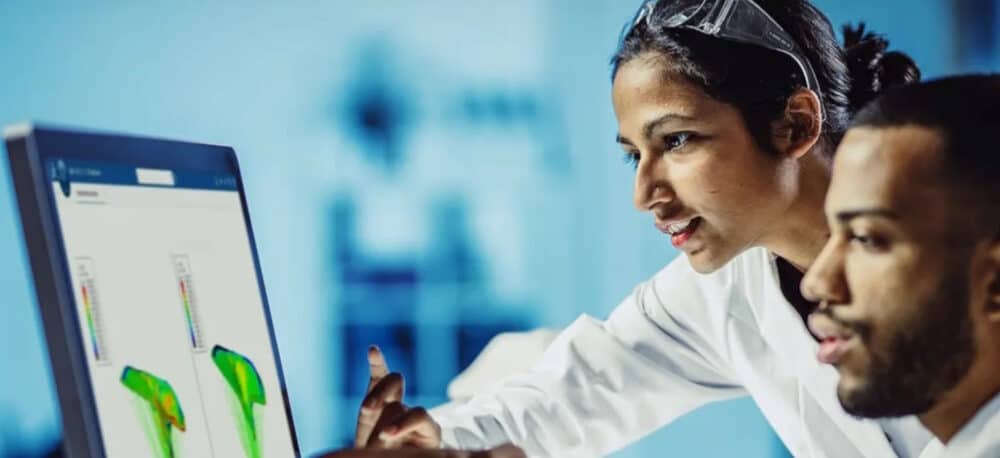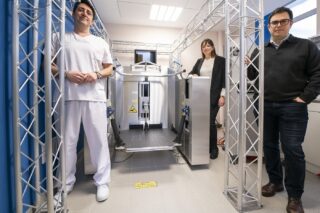The FDA and Dassault Systèmes’ ENRICHMENT project uses virtual twins and AI-driven in silico trials to transform life sciences by improving medical device evaluation and accelerating regulatory approval.
The U.S. Food and Drug Administration (FDA), in collaboration with Dassault Systèmes, has embarked on a groundbreaking project to revolutionize patient care through the use of virtual twins. This initiative, known as the ENRICHMENT in silico clinical trial (ISCT) project, was launched in 2019 to explore how virtual patient models can enhance medical device evaluation. After five years of research and collaboration among multidisciplinary teams from academia, industry, clinical practice, and regulatory bodies, the project has culminated in a comprehensive regulatory guide published in the Frontiers in Medicine journal on August 12, 2024.
The ENRICHMENT project aims to address key challenges in establishing the credibility of ISCTs, which are designed to simulate real-world clinical trials using computational models. These virtual twins, which combine physics-based and data-driven simulations, offer a promising avenue to reduce the size, cost, and duration of traditional clinical trials. The project has developed a hierarchical framework for validating ISCTs, ensuring their reliability and regulatory acceptance while maintaining patient safety.
WATCH a video from Science Week on the ENRICHMENT in Silico Clinical Trial here.
The Potential of Virtual Twins in Patient Care
Virtual twins represent a transformative approach in the healthcare industry, offering unprecedented opportunities to simulate and analyze patient responses to medical interventions. Through the ENRICHMENT project, virtual twins have been used to replicate the complexity of heart diseases, leveraging data-driven models to predict patient outcomes and optimize treatment strategies. A key component of this initiative is the Surrogate Powered Virtual Patient Engine, which utilizes real-world physiological and health data as a foundation for a generative AI model. This model can rapidly create synthetic datasets that simulate diverse patient populations, providing a robust foundation for ISCTs.
The integration of virtual twins with real-world data allows healthcare providers to design virtual clinical trials that accurately reflect patient variability, leading to more personalized and effective treatment plans. By simulating device behavior within the human body under different physiological conditions, virtual twins help identify potential risks and optimize device performance before actual clinical implementation. The ability to refine trial protocols and treatment pathways virtually reduces the need for extensive patient recruitment and accelerates regulatory approval processes.
READ the paper published in Front Med on 12 August 2024: Toward trustworthy medical device in silico clinical trials: a hierarchical framework for establishing credibility and strategies for overcoming key challenges.
Challenges and Strategies for Establishing ISCT Credibility
One of the primary challenges of using ISCTs in regulatory applications is ensuring their credibility. The ENRICHMENT project has addressed this by proposing a hierarchical approach to credibility assessment, which involves systematically validating each ISCT submodel before assessing the credibility of the full trial. The submodels include representations of medical devices, patient anatomy, device-patient interactions, virtual cohorts, clinician decision-making, and clinical outcome mapping.
Establishing the credibility of these submodels requires evidence gathered from various sources, including retrospective clinical data, physics-based simulations, and statistical models. The project aligns with the FDA’s V&V40 standard and the latest guidance on computational modeling, ensuring a robust framework for regulatory submissions. The hierarchical approach enables developers to identify and address gaps in model validation early in the development process, ultimately enhancing the reliability of ISCT outcomes.
Another significant hurdle is the integration of hybrid models that combine physics-based and AI-driven elements. The ENRICHMENT project has proposed a structured methodology to validate these hybrid models by leveraging standardized validation techniques and developing empirical mapping models to correlate simulation outputs with clinical outcomes. This approach ensures that ISCTs can accurately predict device safety and effectiveness across a range of clinical scenarios.
Future Implications and Industry Adoption
The successful implementation of virtual twins through the ENRICHMENT project marks a significant milestone in the digital transformation of healthcare. The insights gained from this initiative provide a roadmap for future adoption of ISCTs in regulatory processes, potentially paving the way for faster, more efficient, and ethically responsible clinical trials. The ability to generate high-fidelity virtual patient populations also opens new possibilities for personalized medicine, allowing treatments to be tailored to individual patient characteristics.
As the regulatory landscape evolves, the collaboration between the FDA and Dassault Systèmes serves as a model for leveraging digital technologies to enhance patient care. Healthcare stakeholders, including medical device manufacturers and regulatory agencies, are encouraged to adopt ISCT methodologies to improve the efficiency and accuracy of clinical evaluations. The ENRICHMENT project demonstrates that with careful validation and adherence to regulatory standards, virtual twins can become a cornerstone of modern healthcare innovation.
The ENRICHMENT in silico clinical trial project represents a significant leap forward in integrating computational modeling into regulatory pathways. By addressing key challenges and providing a validated framework, this initiative sets the stage for broader adoption of virtual twins in medical research and patient care, ultimately leading to better health outcomes and more efficient healthcare systems.











